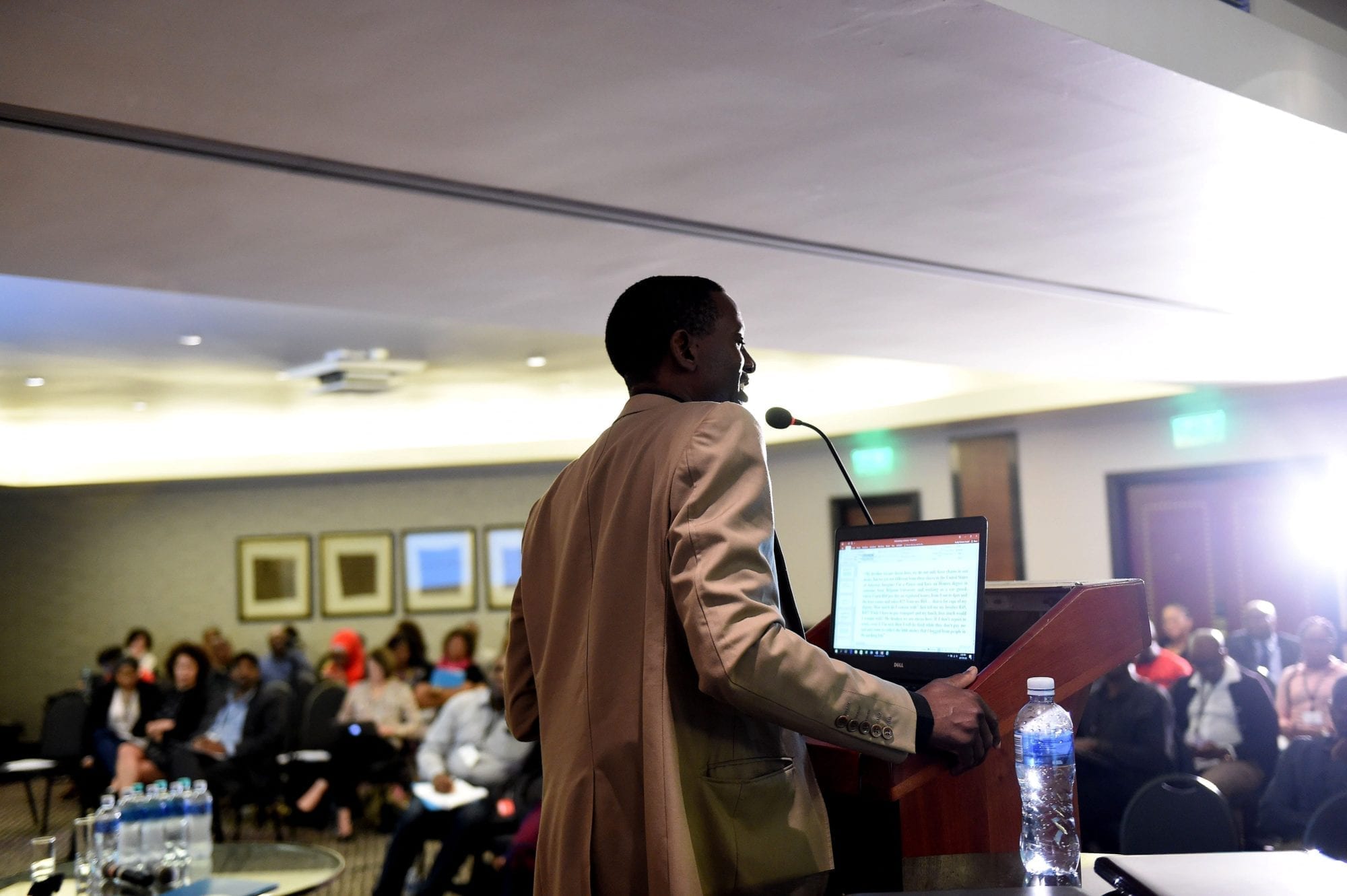
Jan 26, 2017
Xenophobia and racism are embedded in the daily economic and social situation of labor migrants and refugees, according to Joseph Rudigi Rukema, a sociology professor at the University of KwaZulu-Natal.
“The world is witnessing a growing level of intolerance against foreign labor migrants, refugee and asylum seekers,” he says. Rukema kicked off the afternoon session of the first day at the January 25–27 Solidarity Center Fair Labor Migration conference in Johannesburg, South Africa. (See more conference coverage here.)
The more than 120 conference participants joined in discussions on xenophobia and racism and ended the day by strategizing at break-out sessions on union responses to migration flows and migrant worker exploitation.
Although Rukema focused his presentation on conditions in South Africa, the experiences of migrant workers he described occurs across Africa—and the world.
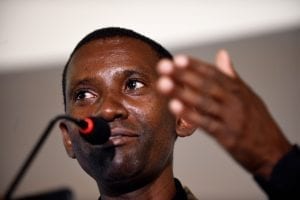
Unions can play an important role by advocating creation of conducive economic and political condition in migrants’ home countries, says Joseph Rukema.
The exploitation of migrant workers begins with their journey, as labor brokers and others take advantage of their precarious situation, says Rukema. After migrant workers arrive in their destination countries, they “define racism in terms of their working conditions”—such as employer exploitation, he says. Migrant workers also are subject to daily harassment by police and other officials, often inhumane treatment by officials when seeking work permits and lack of access to banking institutions.
“If you look at most of migrants, they flee economic conditions in their home countries,” says Rukema, and unions can play an important role by advocating creation of conducive economic and political condition in migrants’ home countries.
“Build a network with existing institutions and really strong grassroots networks,” he says. (Download Rukema’s full presentation here.)
In the two final break-out sessions, participants discussed the challenges to reaching and empowering migrant workers. They identified such obstacles as the difficulty in reaching informal economy workers, many of whom are migrant workers; xenophobia and suspicion by local residents; and the difficulty in documenting those migrating for work.
Further, union leaders pointed to the need to step up efforts to ensure their governments ratify international conventions, especially the International Labor Organization Convention 143 on migrant workers, and develop comprehensive strategies to ensure migrant workers are represented.
Over the next two days, conference participants will develop concrete proposals to meet the challenges of empowering migrant workers. You can follow the conference on Twitter with the hashtag FairMigration and check out Solidarity Center on Facebook for regular updates.
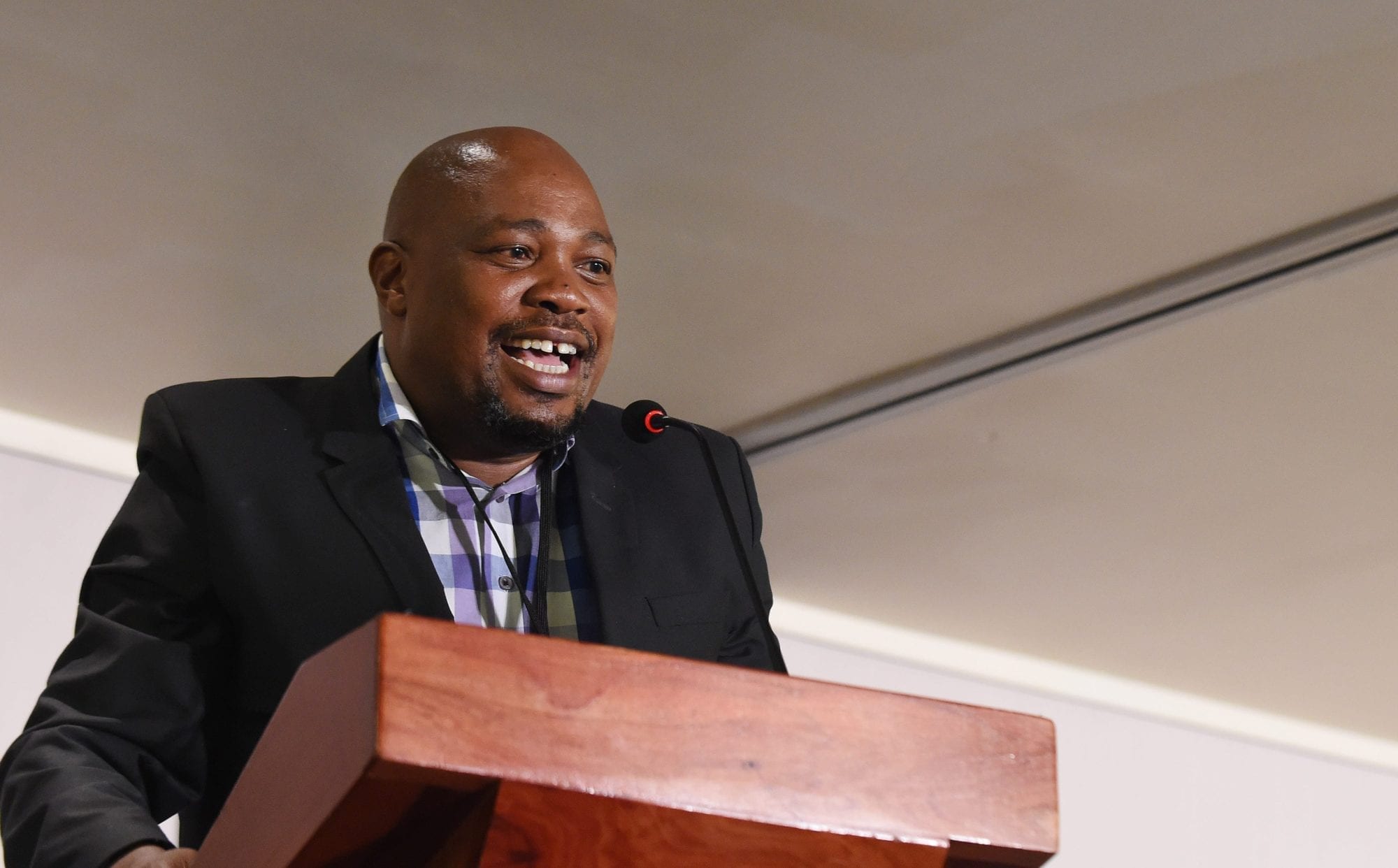
Jan 25, 2017
An estimated 998,000 African migrants entered South Africa between 2011 and 2015, says Mondli Hlatshwayo, coordinator with the Center for Education Rights and Transformation at the University of Johannesburg, where he researches community and trade union education, especially strengthening and building grassroots social justice formations.
But although labor migration from Africa has historically been a male-dominated phenomenon, the pattern has changed significantly in recent decades.
“African women are leaving their countries of birth to create new lives elsewhere. Economic opportunities are primarily available in child care,” and domestic work, he says.
Speaking this morning at the first day of the Solidarity Center conference on fair labor migration, Hlatshwayo provided a detailed overview of migration flows in southern Africa, especially what he describes as the “feminization of migration,” a key focus of the January 25–27 conference’s opening day.
Nearly half of all migrant workers are women, with the feminization of migration increasing in Africa over the past few decades as women seek to support their families. Yet “the situation is worse for women immigrants” who face exploitation based on their sex, he says.
Hlatshwayo described the experience of Pamela Khumalo, a woman migrant worker working in South Africa’s early childhood development sector, who described both her struggle and her courage:
“We have to persevere. Resilience keeps us going. We have to survive against all odds and that has to do with the fact that there are no job and economic opportunities in Zimbabwe. We survive violence on the way to South Africa, because we are looking for work.”
Read Hlatshwayo’s full presentation here.
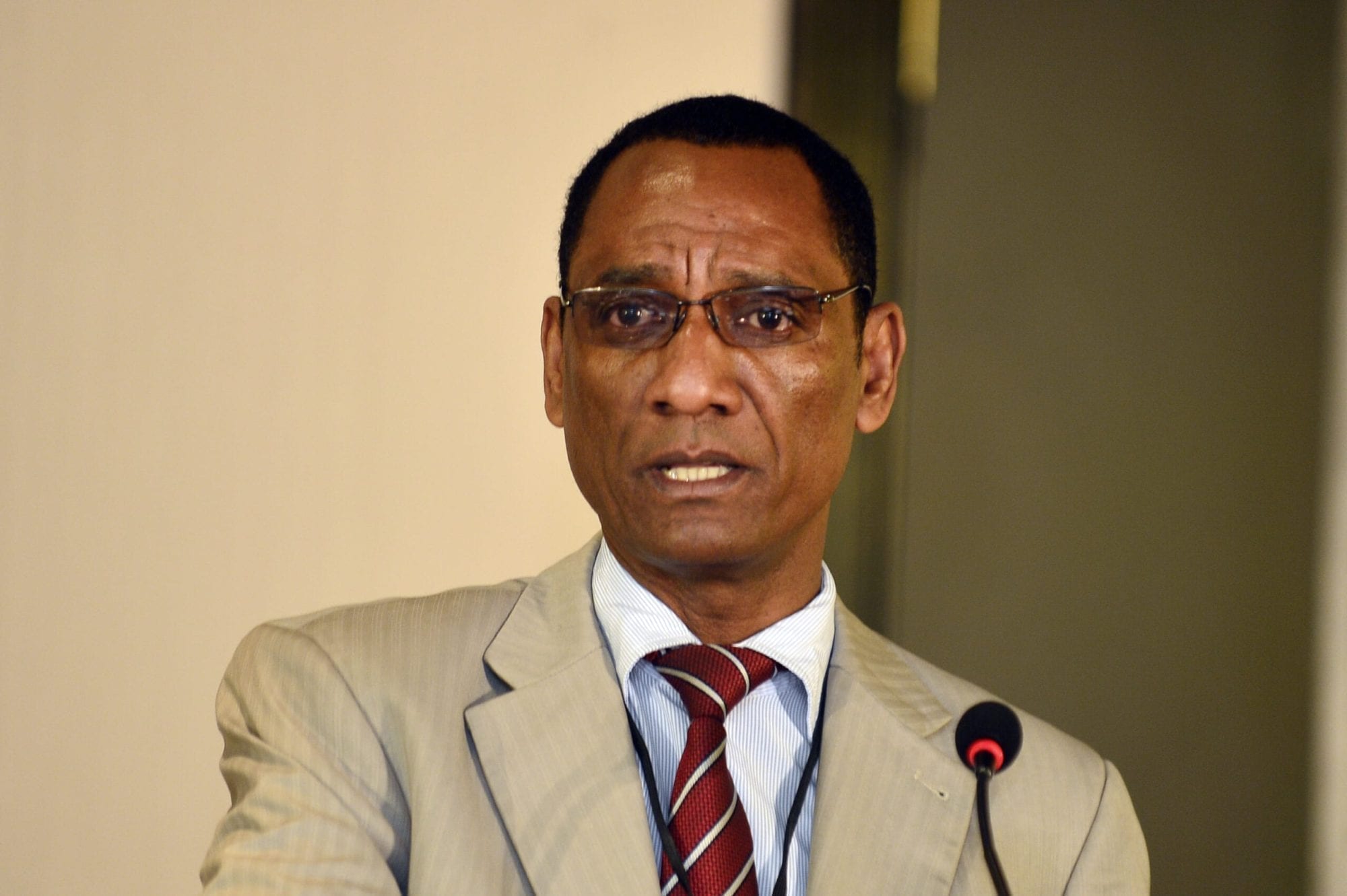
Jan 25, 2017
The respect and dignity of labor migrants is under increasing threat, says Kassahun Follo, first vice president, International Trade Union Confederation-Africa, as migrant workers are demonized and denied basic rights, actions driven by exploitation, racism and xenophobia.
Follo spoke this morning at the opening of the January 25–27 Solidarity Center conference, “Achieving Fair Migration: Roles of African Trade Unions and Their Partners” in Johannesburg, South Africa, where more than 120 union leaders, migrant worker rights advocates and top international human rights officials from nearly two dozen countries and 57 organizations are gathering to share strategies for empowering migrant workers and map out plans for changing policies and laws to provide migrant workers fundamental workplace rights.
(Follow the conference on Twitter with the hashtag FairMigration and check out Solidarity Center on Facebook for regular updates.)
Conference Seeks to ‘Put an End to Employer Abuse of Migrant Workers’
The conference’s opening day focused on the feminization of migration, the varied challenges of migration flows at the region=al level in East, Southern and West Africas, and the global threats of xenophobia and discrimination against migrant, included a discussion with migrant domestic workers.
The conference goal, says Peter Hardie, Solidarity Center country program director, is to “create concrete plans, multilateral and bilateral dialogue to drive change to put a permanent end to the abuses of migrant workers by their employers.”
Worldwide, some 150 million people have traveled across borders and are right now migrant workers in another country and send home global remittances totaling $601 billion dollars. In Africa, 34 million workers are migrants — the majority moving across borders to search for decent work. Half of migrant workers are women, who are especially targeted for abuse and exploitation, often due to their marginalization in the informal economy.
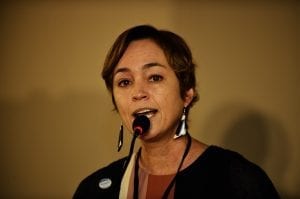
“Making sure working people have the right to form trade unions is the heart and soul of our work,” Credit: Solidarity Center/Evidence Holdings
Although labor migration fuels the world economy, it takes place in a global economy set up entirely on the belief that the free movement of capital and profit across borders is desirable, even sacrosanct; and that lack of regulation is what is needed to make this happen.
“Yet there has been no commensurate systemic expansion of the rights of the working people to go along with the incredible expansion of the rights of business. In fact, the opposite has occurred,” says Solidarity Center Executive Director Shawna Bader Blau, speaking during the conference opening plenary.
Bader-Blau urged participants to build national, cross-border and global coalitions to advance human rights in trade agreements and regional economic integration programs, work harder together to end the double standard of investor rights over worker rights and hold governments accountable to the creation of decent work at home “so migration is truly a choice.”
“Making sure working people have the right to form trade unions is the heart and soul of our work,” says Bader-Blau. The conference must look at how unions “make sure migrant workers have these rights.”
Read Bader-Blau’s full speech here.
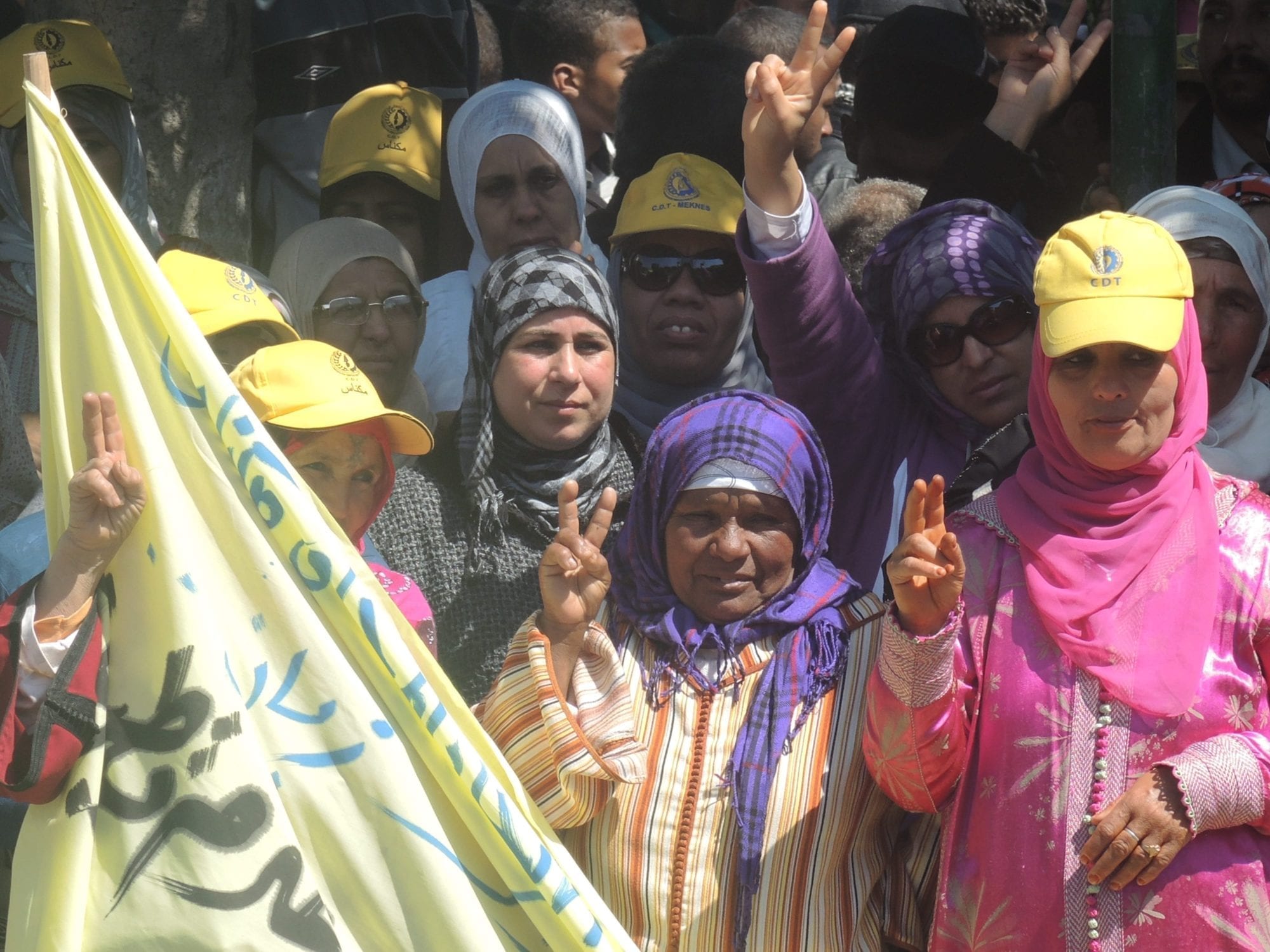
Jan 24, 2017
Decent work, living wages, safe workplaces–these are some of the goals the Solidarity Center envisions for all workers around the world and for which it strives as the largest U.S.-based international worker rights organization, says Solidarity Center Executive Director Shawna Bader-Blau in a recent interview.
Speaking on “Human Rights Heroes,” a podcast sponsored by the U.S. State Department’s Office of International Labor Affairs, Bader-Blau pointed to broad-based human rights workers can achieve when they join together in unions or associations.
“Just in the past 50 years, we can see that every major transition to democracy has had trade unions front and center.”
In Morocco, the Solidarity Center supported more than 1,000 agricultural workers, many with limited literacy and the majority women, who came together to form their first union in export agriculture.
“They sat down with employers they had always been intimidated by and negotiated fair wages, decent work and dignity for the first time,” says Bader-Blau. The workers now have full-time employment, fair wages and safer jobs.
Speaking with podcast host Sarah Fox, outgoing special representative for international labor affairs, Bader-Blau also discussed the landmark freedom of association report produced in October by United Nations Special Rapporteur Maina Kiai; the scourge of human trafficking for labor and forced labor; and the UN’s Sustainable Development Goals, especially Goal 8 on inclusive and sustainable economic growth, employment and decent work for all.
Despite economic growth and reduction of poverty in recent years, says Bader-Blau, “we’ve seen an expansion of inequality within states and between states.”
But with Goal 8, “we will be able to create through good employment the ability to have fair economies and more just societies, when workers every day can go to work and know they will get paid what they are owed and won’t face indignities at work and that they will make family supporting wages.”
Listen to the full podcast here.
Jan 23, 2017
A new briefing from the Solidarity Center detailed the intimidation, arrests and firing that followed the garment worker walk-out in December. The Solidarity Center warned that the “broad crackdown on garment workers, union leaders and worker rights activists in Bangladesh marks a troubling escalation of workers to silence garment workers.”






